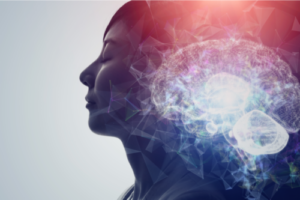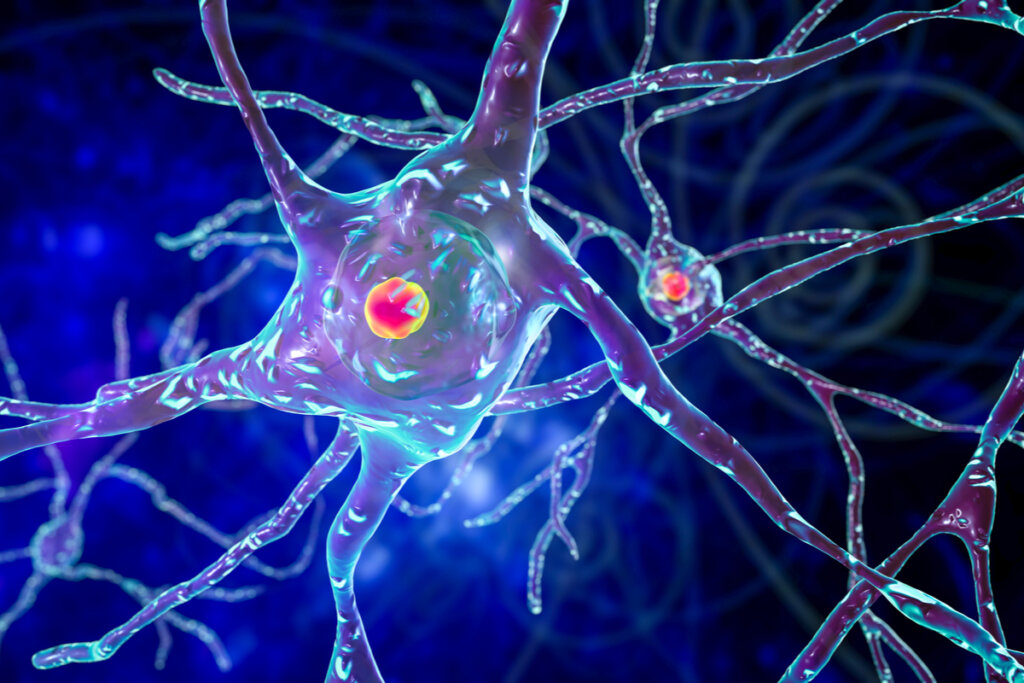Oxytocin Promotes the Creation of New Neural Connections


Written and verified by the psychologist Valeria Sabater
If we asked you to name the first hormone that comes to your mind, what would it be? More than likely, you’d choose oxytocin. This little chemical has enormous powers in the brain. So much so that, every so often, we discover a new function of this chemical known worldwide as the ‘love hormone’.
For example, a study conducted by the Catholic University of Louvain (Belgium) found that college students who were given an oxytocin nasal spray weren’t reluctant to share painful moments from their past with strangers.
As if this fact isn’t striking enough, now, one more piece of information has been revealed. it’s the fact that oxytocin enhances brain plasticity due to the creation of new neural connections. Thanks to this, our brains remain healthy, agile, and with good cognitive reserves. This also promotes healthy aging and even the development of new skills.
Oxytocin doesn’t just mediate social connections, sexuality, childbirth, or memory. It’s also important for the creation of connections between neurons.

The brain, learning, and health
Have you learned something new today? Are you one of those people who love to learn languages, play instruments, or discover new facts every day, thanks to reading and research? If so, you should know that, not only are you contributing to a happier brain, but also to better health and cognitive efficiency.
Oxytocin is a neuropeptide that acts like a protein. It promotes and facilitates the connection of neurons with each other. This means that it’s decisive in the learning processes of all mammals.
To better understand the magic of this process, think about the feeling that mastering or understanding new knowledge produces in you.
When you successfully engage in learning processes you feel satisfied. This feeling of happiness or well-being that you experience when mastering a new skill is driven by oxytocin. Therefore, it emphasizes the need to take care of school learning environments to ensure that this process is always meaningful and stimulating for children.
Recent research has found that oxytocin could promote the synapse of new neurons. This could allow damaged tissue to be treated and repaired.
How oxytocin promotes the creation of new neural connections
A team of researchers from Baylor College of Medicine and Texas Children’s Hospital (USA) recently made an exciting discovery. This was the fact that oxytocin favors the creation of new neural connections and could even promote the repair of damaged brain tissue. It’s hopeful data for the future.
The study was published in the journal, Genes & Development. It sought to discover which molecules are those that allow the creation of new neurons and connections in the brain. Although the researchers claim that more in-depth research is required, for the moment it seems that oxytocin is a multipurpose molecule that mediates brain plasticity.
Your neurons are of no use to you if there are no synapses between them.
In 1978, journalist Steven Levy discovered that Albert Einstein’s brain was in the hands of Dr. Thomas S. Harvey who had analyzed it in detail. Surprisingly, the first thing he noticed was that it wasn’t particularly heavy or large. So, what was the greatest cerebral peculiarity of the father of the theory of relativity?
In fact, Einstein’s brain had a large number of glial cells relative to neurons. Consequently, it contained a large number of neuronal connections. We all come into the world with a certain number of neurons. Neuronal pruning in childhood determines our cognitive efficiency based on how many synapses there are.
Today, we know that oxytocin triggers a series of molecular processes that stimulate synapse maturation. If there aren’t good levels of this hormone, the brain will show serious levels of deterioration and have certain limitations.
We can stimulate the production of oxytocin
We already know that oxytocin favors the creation of new neural connections. It’s also clear that a low level of this hormone puts health and brain potential at risk. So, is there a way of facilitating the presence of this hormone to mediate neurological plasticity?
The current changes in our lifestyles mean it’s an interesting time to study the plasticity of the brain. This peptide or short protein drives neuronal synapses and can be enhanced through some really basic and decisive tasks:
- Aerobic or cardiovascular exercise. Physical activities that facilitate an increase in oxygen consumption by the body.
- Mental or cognitive exercise. For example, memory, reflection, analysis and deduction tasks, creativity and innovation exercises, etc.
- Learning new content and new languages.
- Playing one or more instruments facilitates the creation of new neural connections.
- Socialization, making friends, and sharing time with other people promotes the release of oxytocin. This is essential to promote new synapses.
- A good diet and a good night’s rest are also essential.
We all produce oxytocin in our brains. However, science seeks to modulate its synthesis to further improve brain plasticity in the future. This is especially the case in incidences of neurodevelopmental disorders, and traumatic or neurovascular accidents.

Possibility of new treatments in the future
The findings of this research may prove promising in the near future. At the moment, we know that oxytocin improves neurological conditions by favoring the creation of new neuronal connections. Furthermore, there’s hope that, at some point, damaged brain tissue, either due to developmental disorders or due to traumatic or vascular accidents will be able to be repaired.
However, more work and investment are needed to achieve this goal. Nevertheless, it appears that oxytocin is a promising element that not only mediates sociability, affection, and learning. In fact, a healthy, efficient brain endowed with essential neuroplasticity also depends on this multipurpose molecule.
All cited sources were thoroughly reviewed by our team to ensure their quality, reliability, currency, and validity. The bibliography of this article was considered reliable and of academic or scientific accuracy.
- Brandon T. Pekarek, Mikhail Kochukov, Brittney Lozzi, Timothy Wu, Patrick J. Hunt, Burak Tepe, Elizabeth Hanson Moss, Evelyne K. Tantry, Jessica L. Swanson, Sean W. Dooling, Mayuri Patel, Benjamin D.W. Belfort, Juan M. Romero, Suyang Bao, Matthew C. Hill, Benjamin R. Arenkiel. Oxytocin signaling is necessary for synaptic maturation of adult-born neurons. Genes & Development, 2022; DOI: 10.1101/gad.349930.122
- Lane A, Luminet O, Rimé B, Gross JJ, de Timary P, Mikolajczak M. Oxytocin increases willingness to socially share one’s emotions. Int J Psychol. 2013;48(4):676-81. doi: 10.1080/00207594.2012.677540. Epub 2012 May 3. PMID: 22554106.
This text is provided for informational purposes only and does not replace consultation with a professional. If in doubt, consult your specialist.








